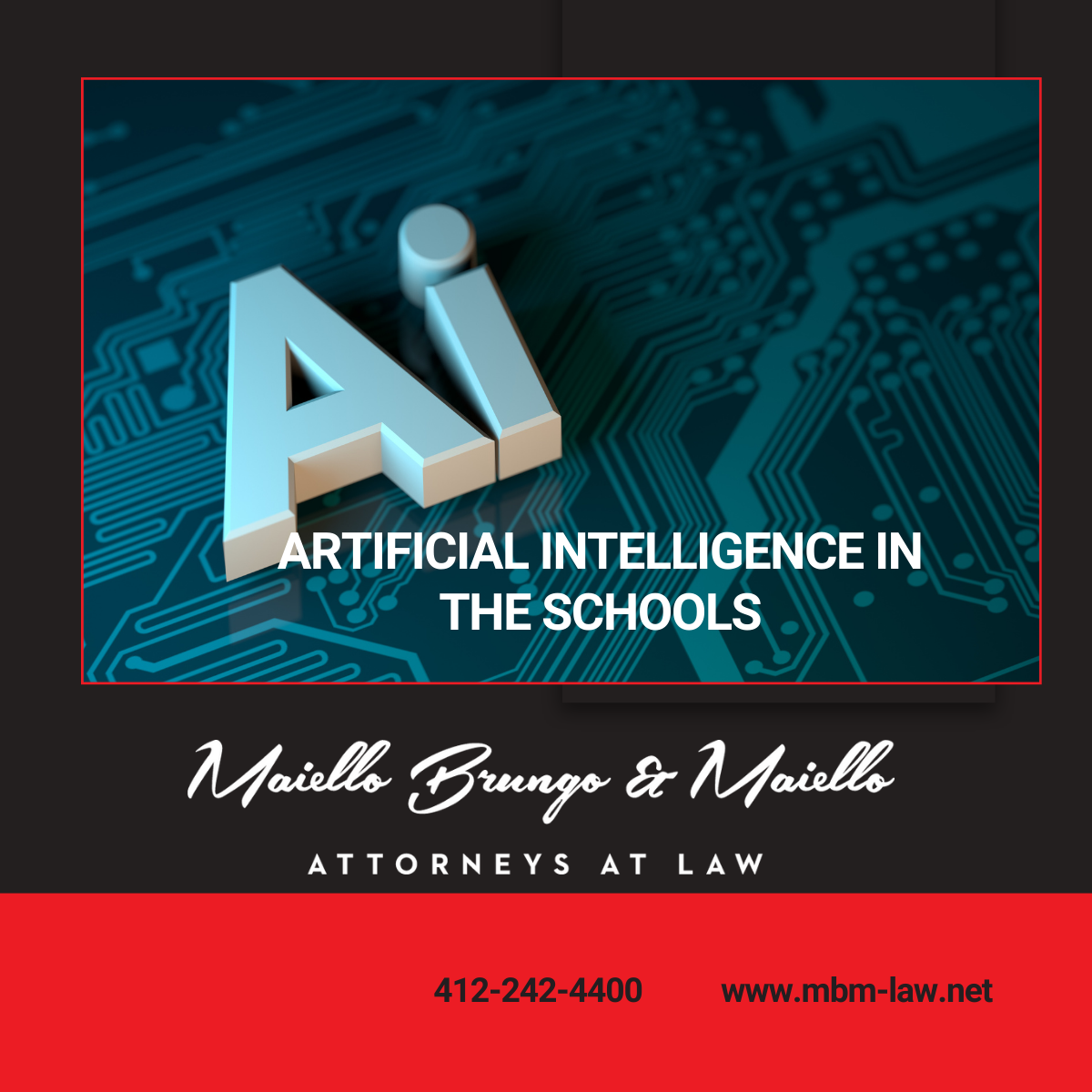While artificial intelligence (AI) is revolutionizing industries, its application in classrooms is still in its early stages. Though the potential for AI-powered tools to personalize learning and enhance instruction is undeniable, school administrators face a complex landscape of legal considerations as they navigate this new frontier.
Don’t navigate this alone: The experienced education attorneys of MBM Law can help you develop a legal framework for AI integration that empowers your school to unlock the potential of this technology while mitigating risks.
Contact the MBM Law Education Law Firm
How AI in Classrooms Affect School Administrators
The integration of AI in classrooms offers significant benefits for school administrators, from enhanced decision-making and operational efficiency to improved teaching support. It also brings numerous challenges touching on a multitude of areas, such as data privacy and bias. While AI provides administrators with actionable data-driven insights to analyze vast amounts of information and useful predictive analytics for forecasting and trends, administrators must exercise transparency and accountability when making decisions using AI.
Legal Considerations for School Districts
When using AI, school administrators need to ensure that practices involving data privacy and security are in compliance with FERPA and COPPA in protecting student information to avoid legal repercussions.
AI has advanced significantly, but still has limitations in broader general intelligence and contextual understanding, compared to that of humans. The American Federation of School Administrators’ (AFSA) AI and education research shows that ethical considerations, such as biases against students, is an issue that needs to be addressed as AI continues to evolve. Administrators must make sure that AI tools being used are designed and tested to prevent discriminatory practices.
Creating School Policies for AI Use (Developing an AI Implementation Plan?)
School administrators must develop an AI implementation plan, and enforce ethical guidelines for the use of AI in education. Ensuring that AI is used to enhance and support learning, rather than control the learning process and curtail critical thinking skills, is key during development and implementation.
For detailed legal advice on integrating AI into your school and developing policies, contact MBM’s Education Law Team.
The Benefits and Challenges of AI in Education
AI technology enables computers to analyze vast amounts of data, recognize patterns, automate complex processes, and much more. However, it still has its limitations. Current AI systems can lack broader common sense intelligence, and the use of AI raises a number of ethical considerations that education policymakers and users alike continue to grapple with.
The Pros of AI in Education
Numerous ideas surrounding the positive uses of this technology in a school environment have already been conceived and are being advanced as goals by the Department of Education (DOE). In their recent policy report, the DOE highlights many key takeaways surrounding the potential of AI in education, including:
- Easier or novel forms of interaction. Students and teachers can utilize computer resources to more efficiently and effectively communicate their needs and desires to one another. This can also facilitate better communication between parents and teachers, and also bridge language barriers for non-English speaking guardians.
- Powerful adaptivity. AI enables educators to adapt to individual student needs on the fly. It is easier to track a student’s progress and adjust as needed to any apparent issues or confusion before a test grade comes back with a less than desirable result. This can additionally cater to specific students’ strengths and weaknesses, helping to overcome obstacles and increase efficiency in the classroom. Assistive AI technologies for students with disabilities can also help to make education more inclusive.
- Enhanced feedback and educator tools. AI can increase the quality and quantity of feedback for both teachers and students alike and can suggest tools and advice for stronger engagement.
The Cons of AI in Education
It is hard to ignore the potential for misuse that comes with such a powerful technology. Issues such as data privacy and security and plagiarism are already being confronted in classrooms across the nation, and it is clear that this is only the beginning of several problems that will need to be resolved. Chief among these issues is the potential for discrimination due to unwanted patterns in existing data sets and established systems. Unfair automated decision-making can exacerbate these problems, and it is clear that, in an environment so rife with constitutional lawsuits, there is no margin for error.
AI in Schools: School Districts to Embrace or Resist?
What are School Districts across the nation to do in the face of such massive change allowing of AI in schools? The responses have been varied and unclear, with some school administrators embracing the AI models by incorporating them into curricula, while others ban the use of chatbots and like software. Further still, we have seen multiple districts, such as the massive New York City Public Schools, ban ChatGPT just to reverse their ban a short time later.
MBM Law: Your Trusted Legal Partner for Navigating AI in Education
What is clear is that the technology that exists can be utilized in a countless number of ways to achieve the goals of school administrators, and that current landscape allows for flexible and clever solutions to dynamic and unique problems.
To ensure responsible implementation of AI in schools, school administrators need to address the legal challenges in education technology. The Education law team at MBM Law have thrived in addressing AI in the classroom legal concerns for our school districts. We are prepared to assist you with any problems relating to Artificial Intelligence that could arise in your District.
Contact MBM Law Education Lawyers

Christina Lane is an accomplished school, and labor and employment attorney representing public sector employers. She has extensive knowledge and experience with Title IX and often serves as a third-party investigator.

